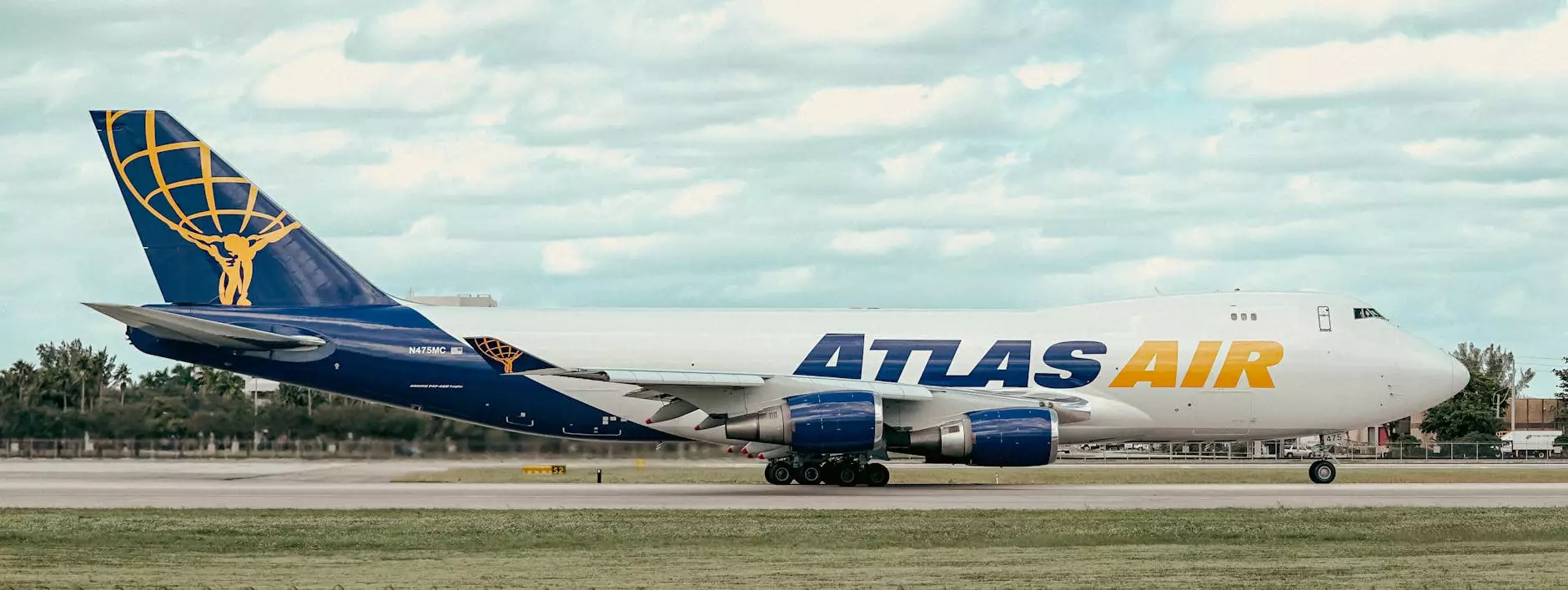Maximizing Efficiency in Air Cargo Transportation: Your Ultimate Guide to Shipping Centers, Transportation, and Airport Logistics

In the modern global economy, the swift and reliable movement of goods via air cargo has become the backbone of international trade and commerce. Whether you're a business owner, logistics manager, or freight forwarder, understanding the intricacies of air cargo track trace systems, the optimal operation of shipping centers, and efficient airport logistics can dramatically improve your supply chain performance. This comprehensive guide explores everything you need to know about business logistics, especially in the context of air freight, emphasizing how companies like Cargobooking.aero are revolutionizing the way cargo is managed, tracked, and delivered across the globe.
Understanding the Role of Shipping Centers in Modern Logistics
Shipping centers serve as critical hubs in the vast network of global cargo transportation. They are strategically located facilities designed to facilitate the consolidation, sorting, and distribution of goods. These centers act as the nerve centers of freight operations, ensuring that cargo moves smoothly from origin to destination.
- Distribution Efficiency: Shipping centers streamline processing, helping to reduce transit times and improve delivery accuracy.
- Inventory Management: Advanced warehousing solutions allow for better inventory control and rapid dispatching.
- Connected Systems: Modern centers integrate with advanced IT systems, enabling real-time updates and connectivity with transportation modes and airports.
- customs and compliance: Efficient centers support clearance procedures, ensuring legal compliance and swift border crossings.
The Significance of Transportation in Air Cargo Business
Effective transportation strategies are vital to the success of air cargo logistics. They encompass various modes, including air, land, and sea, working together to optimize speed, cost, and reliability.
Integrated Multimodal Systems
A seamless multimodal transportation system combines air freight with trucks and ships, creating a flexible and resilient logistics chain. This integration ensures that cargo reaches its destination on time while minimizing costs and reducing delays caused by unforeseen events.
Advanced Fleet Management
Modern transportation relies heavily on GPS tracking, telematics, and predictive analytics to monitor vehicle conditions, optimize routes, and anticipate potential disruptions. Such technologies not only improve efficiency but also enhance safety and customer satisfaction.
Innovations in Transportation Technology
The transportation sector is continuously innovating with drone deliveries, automated vehicles, and AI-driven scheduling. These innovations aim to reduce human error, increase throughput, and decrease operational costs.
Airports: The Gateway to Global Air Cargo Transportation
Airports are more than just the entry and exit points for cargo; they are complex logistic ecosystems. Efficient airport operations are crucial to maintaining the speed and security required in today’s fast-paced business environment.
- Cargo Handling Facilities: State-of-the-art handling equipment reduces turnaround times and minimizes damage or loss.
- Security Measures: Cutting-edge security protocols ensure cargo safety without impeding flow.
- Customs Processes: Streamlined customs procedures with digital documentation expedite clearance processes.
- Infrastructure Development: Modern airports invest in expanded apron spaces, high-capacity warehouses, and dedicated cargo zones.
Enhancing Cargo Management with Air Cargo Track Trace Systems
Central to modern air freight logistics is the air cargo track trace system. It provides real-time visibility, allowing stakeholders to monitor cargo status from pick-up to delivery. Implementing advanced track trace solutions significantly enhances operational transparency, reduces lost or delayed shipments, and builds trust with clients.
Features of State-of-the-Art Air Cargo Track Trace Platforms
- Real-Time Updates: Continuous tracking updates via GPS and RFID technology.
- Dashboard Monitoring: User-friendly interfaces provide instant insights into shipment status and history.
- Automated Alerts: Instant notifications about delays, customs issues, or potential disruptions.
- Integration Capabilities: Compatibility with enterprise resource planning (ERP) and transportation management system (TMS) software.
- Proof of Delivery: Digital signatures and photo verification streamline billing and dispute resolution.
The use of air cargo track trace systems has become a competitive necessity for logistics companies aiming to meet customer expectations for speed, accuracy, and transparency.
How Cargobooking.aero Revolutionizes Air Cargo Business
Cargobooking.aero is at the forefront of integrating technology and expertise to redefine air cargo management. Their platform offers comprehensive solutions tailored for shipping centers, transportation providers, and airport operators.
Key Benefits of Using Cargobooking.aero
- Intuitive Booking Platform: Simplify freight reservations with an easy-to-use interface, reducing administrative overhead.
- Advanced Tracking Features: Leverage integrated air cargo track trace tools for real-time shipment status and proactive issue resolution.
- Global Network Connectivity: Seamless integration with worldwide airports, carriers, and shipping centers ensures comprehensive coverage.
- Data-Driven Insights: Analytics dashboards enable better decision-making, helping optimize routes and reduce costs.
- Customer-Centric Service: Transparent communication fosters stronger customer relationships and satisfaction.
Best Practices for Optimizing Air Cargo Logistics
Achieving excellence in air freight requires adopting best practices that leverage technology, strategic planning, and industry knowledge. Here are some essential recommendations:
- Implement Real-Time Tracking: Investing in advanced air cargo track trace solutions enhances visibility and allows quick responses to issues.
- Optimize Shipping Centers: Continuously upgrade infrastructure and processes to reduce handling times and minimize errors.
- Prioritize Security and Compliance: Ensure adherence to international regulations and implement robust security protocols.
- Develop Strategic Airport Partnerships: Collaborate with key airports to streamline customs, security, and cargo processing.
- Leverage Data Analytics: Use insights from your tracking and management systems to refine logistics strategies.
- Focus on Sustainability: Incorporate eco-friendly practices such as optimizing routes to reduce carbon footprint and using sustainable packaging materials.
The Future of Air Cargo Business: Trends and Innovations
The air cargo industry is poised for significant transformation driven by technological innovations and shifting global demands. Some prominent trends include:
- Automation and Robotics: Automated warehouses and sorting centers improve speed and accuracy.
- Artificial Intelligence (AI): AI-driven forecasting and route optimization enhance decision-making.
- Blockchain Technology: Secures and simplifies documentation, customs clearance, and ownership transfers.
- Environmental Sustainability: Green technologies and fuel-efficient aircraft contribute to reducing environmental impact.
- Enhanced Customer Experience: Personalized tracking portals and proactive communication are setting new standards for service.
Conclusion: Why Investing in Advanced Logistics Is Vital for Your Business
In an increasingly competitive global marketplace, the ability to efficiently manage shipping centers, coordinate transportation, and utilize sophisticated air cargo track trace systems can be the differentiator that elevates your business above competitors. By partnering with innovative platforms like Cargobooking.aero, you access cutting-edge technology that provides comprehensive visibility, operational efficiency, and improved customer satisfaction.
Embracing the future of air freight logistics isn’t just about keeping up; it’s about leading your industry with smart, data-driven, and sustainable practices that position your company for long-term success and growth.









